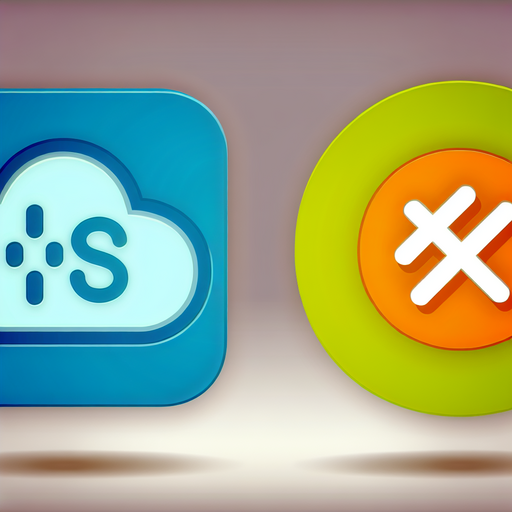Nextcloud and the Checksum App: Ensuring Data Integrity
In the rapidly evolving landscape of cloud storage solutions, Nextcloud stands out as a powerful, open-source platform offering unparalleled flexibility and security. Today, we delve into one of its most vital apps, the Checksum app, which is designed to ensure data integrity. This article will guide you through everything you need to know about Nextcloud and the Checksum app, from installation and setup to advanced features and benefits.
What is Nextcloud?
Nextcloud is a self-hosted, open-source cloud storage solution that enables you to manage your data securely and efficiently. Unlike traditional cloud storage services like Google Drive or Dropbox, Nextcloud gives you full control over your data. You can host it on your own server, ensuring enhanced privacy and security. Some of the core features of Nextcloud include:
Get Nextcloud with 1 TB of storage for just up to €3.99 per month.
Try it now for one month free and risk-free.
- File synchronization across multiple devices
- Real-time collaboration tools
- Comprehensive user management
- Expandable via a rich ecosystem of apps
Why Choose Nextcloud?
The decision to use Nextcloud goes beyond mere storage. It provides a wide range of functionalities that empower users to collaborate, share, and manage data effectively. Here are some compelling reasons to choose Nextcloud:
- Data Privacy: You own your data. No third-party access or surveillance.
- Customization: Extensive customization options allow you to tailor the platform according to your needs.
- Collaboration: Integrated tools for team collaboration, including chat, calendar, and shared editing.
- Security: State-of-the-art security features including end-to-end encryption, two-factor authentication, and more.
Introducing the Checksum App
The Checksum app is one of the most crucial additions to the Nextcloud ecosystem. Its primary function is to ensure the integrity of your data by verifying that files have not been altered or corrupted during transfer. Here’s a closer look at what the Checksum app offers:
Key Features of the Checksum App
- File Verification: Ensure that every file stored and transferred retains its original data.
- Automatic Checksum Calculation: Checksums are calculated automatically when a file is uploaded or modified.
- Compatibility: Supports various algorithms such as MD5, SHA-1, and SHA-256.
- User Notifications: Alerts users if a file fails verification.
How to Install and Set Up the Checksum App on Nextcloud
Setting up the Checksum app on your Nextcloud instance is straightforward. Here’s a step-by-step guide:
Step 1: Nextcloud Installation
If you haven’t already set up Nextcloud, you need to install it first. You can either host it on your own server or use a hosting service that supports Nextcloud. Follow the official Nextcloud installation guide for detailed instructions.
Step 2: Install the Checksum App
Once your Nextcloud instance is up and running, navigate to the ‚Apps‘ section. Search for ‚Checksum‘ and click ‚Install‘. The app will be added to your Nextcloud instance.
Step 3: Configuration
After installation, you need to configure the Checksum app. Go to the ‚Settings‘ panel and find ‚Checksum‘ under ‚Admin settings‘. Here, you can choose the default algorithm for checksum calculation and other relevant settings.
Ensuring Data Integrity with Checksum: Best Practices
While the Checksum app provides a robust mechanism for verifying data integrity, there are some best practices you should follow to maximize its effectiveness:
Regular Verification
Schedule regular verifications to ensure that files haven’t been tampered with. You can automate these checks using scripts or cron jobs linked with the Checksum app.
Choosing the Right Algorithm
Select an algorithm that balances speed and security. While MD5 is faster, SHA-256 offers greater security. For most users, SHA-256 provides an excellent balance.
User Awareness
Educate your users on the importance of checksum verification. Encourage them to report any anomalies promptly.
Advanced Uses of the Checksum App
Beyond basic file verification, the Checksum app offers advanced features that can be leveraged for specialized tasks:
Audit Trails
Maintain audit trails of file uploads, modifications, and verifications. This is particularly useful for businesses that need to comply with regulatory standards.
Data Recovery
In the unfortunate event of data corruption, checksums can help identify the last known good state of a file, facilitating targeted recovery efforts.
Integration with Other Apps
The power of Nextcloud lies in its extensibility. Integrate the Checksum app with other Nextcloud apps like ‚Collabora Online‘ or ‚OnlyOffice‘ to ensure data integrity in real-time collaborative environments.
The Future of Nextcloud and Checksum
Nextcloud and the Checksum app are continually evolving to meet the growing needs of users. Future updates and features will focus on enhancing security, improving performance, and offering even more seamless integration capabilities.
User Testimonials
Don’t just take our word for it. Here’s what some users have to say about using Nextcloud and the Checksum app:
„Nextcloud has revolutionized how our team collaborates. With the Checksum app, we have peace of mind knowing our data is always intact.“ – Jane Doe, Project Manager
„The flexibility of Nextcloud coupled with the security of the Checksum app makes it a no-brainer for our organization.“ – John Smith, IT Director
Conclusion
In a world where data integrity is paramount, Nextcloud and the Checksum app provide a powerful, flexible, and secure solution. From individual users to large enterprises, anyone can benefit from the meticulous data verification capabilities that Checksum offers. Whether you are concerned about data corruption, unauthorized modifications, or regulatory compliance, the Checksum app on Nextcloud has you covered.
Ready to take control of your data integrity? Start using Nextcloud and the Checksum app today. Secure your files, verify their integrity, and ensure your data is always in its original, uncompromised state.
